COS GUEST LECTURER – ERGONOMICS
George Matos, CAT(C), CSEP-CPT, RCRT, BA Kin
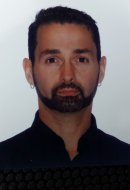
George Matos, CAT(C), CSEP-CPT, RCRT, BA Kin
George Matos is a Certified Athletic Therapist & Musculoskeletal Injury Prevention Specialist, a Certified Personal Trainer, and a Reflexology Therapist.
As a musculoskeletal injury prevention specialist for the Winnipeg Regional Health Authority, Mr. Matos is responsible for servicing the Health Sciences
Centre and Laundry Facilities.
Since graduating in 2000 from the University of Winnipeg, Mr. Matos has been certified as an Athletic Therapist, Personal Trainer and Reflexology Therapist. In his role, he is expected to have a thorough understanding of all the positions held within the region.
Mr. Matos assists with the management and training of the Safe Patient Handling Program and is expected to review and investigate ergonomic injury near misses; perform workstation ergonomic assessments and Physical Demands Analyses; and take part in Return to Work meetings.
Mr. Matos also develops programs and presentations promoting workplace injury prevention, health and safety, proper body mechanics, and ergonomic positioning. Having previously been in a private practice and a co-business owner, he has been a part of the WRHA since 2010, and has been working in the health care field for 18 years.
Financial disclosure: I do not have any affiliation (financial or otherwise) with a commercial organization.
CATARACT
Richard A. Lewis, MD

Richard A. Lewis, MD
Dr. Lewis is the former director of glaucoma at the University of California, Davis. In addition to his busy clinical practice located in Sacramento, California, Dr. Lewis is actively involved in clinical research in national and international trials in anterior segment disease and glaucoma therapy. He is the past president of the American Society of Cataract and Refractive Surgery (2014-15), and past president of the American Glaucoma Society (2000-02). Dr. Lewis is the medical editor emeritus of Glaucoma Today and on the editorial board of the Journal of Cataract and Refractive Surgery, Journal of Glaucoma, Advanced Ocular Care and Ocular Surgery News. He is co-founder of Sacramento’s Capital City Surgery Center (2003).
Dr. Lewis attended the University of California, Berkeley, as an undergraduate and received his doctorate in medicine from Northwestern University Medical School in Chicago in 1978. His ophthalmology training included a residency at the Department of Ophthalmology at the University of California, Davis, and a fellowship in glaucoma at the University of Iowa, Department Of Ophthalmology in Iowa City (1982-83). He is a Diplomat of the American Board of Ophthalmology and the National Board of Medical Examiners.
Dr. Lewis has published over 90 articles and book chapters focusing on glaucoma, ophthalmic surgery, and ophthalmic pharmacology. He is co-author of the book Curbsides in Glaucoma. He teaches and lectures extensively on glaucoma and cataract surgery. He has received the American Academy of Ophthalmology Honor, Senior Honor, Secretariat, and Life Achievement Awards for his contributions in teaching and leadership, and for initiating the AAO Subspecialty Day meeting.
A native of San Francisco, Dr. Lewis lives in Sacramento with his wife; the couple has two grown children.
Financial disclosure: I have/had an affiliation (financial or otherwise) with a commercial organization.
- Aerie
- Alcon
- Allergan
- Oculeve
- Zeiss
- CenterVue
- Ivantis
Arsham Sheybani, MD
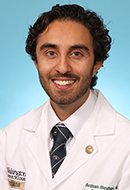
Arsham Sheybani, MD
Dr. Sheybani is assistant professor of ophthalmology, Department of Ophthalmology & Visual Sciences at Washington University School of Medicine, St. Louis, Missouri.
Dr. Sheybani completed his medical degree at Washington University School of Medicine in St. Louis. He then completed his residency in ophthalmology at Washington University in St. Louis and was selected to remain on faculty as chief resident. During that year, Dr. Sheybani was responsible for ophthalmologic trauma and emergencies as well as all adult inpatient ophthalmology consultations at Barnes Jewish Hospital – an over 110-bed teaching hospital at Washington University. He was the primary surgical teacher for the beginning residents and implemented a didactic system that is still used at Washington University.
He then completed a fellowship with Ike Ahmed in glaucoma and advanced anterior segment surgery in Toronto, Canada. He has presented research internationally and is currently involved in device design aiming to make glaucoma surgery safer amongst many other endeavours. He is an avid surgical teacher, training both fellows and residents.
Financial disclosure: I have/had an affiliation (financial or otherwise) with a commercial organization.
- AqueSys
- Allergan
- Ocular Therapeutix
CORNEA
Jodhbir S. Mehta, BSc (Hons.), MBBS, FRCOphth, FRSC (Ed)
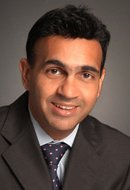
Jodhbir S. Mehta, BSc (Hons.), MBBS, FRCOphth, FRSC (Ed)
Dr. Mehta is head of the Corneal Service and senior consultant in the Refractive Service of the Singapore National Eye Center (SNEC), as well as head of the Tissue Engineering and Stem Cell Group at the Singapore Eye Research Institute and associate professor with DUKE-NUS GMS, and is also examiner for the Royal College of Surgeons of Edinburgh; has trained 14 international fellows, five master students, and six PhD students.
Dr. Mehta divides his time between a clinical service and running a research program comprising clinical and translational studies. His work is focused on corneal transplantation–penetrating keratoplasty, lamellar keratoplasty, endothelial keratoplasty, femtosecond laser technology, corneal imaging, corneal infections, corneal refractive surgery, keratoprosthesis surgery, and corneal genetics.
Dr. Mehta has published over 250 peer-reviewed papers and 12 book chapters. Current H-index 34, citations 3905. He has given over 100 invited plenary, symposia and named lectures globally. His research work has generated 13 patents, 4 of which have been licensed to companies. He is also actively involved in the teaching of regular courses regionally, as well as at AAO and ESCRS in corneal lamellar surgery and femtosecond lasers.
Financial disclosure: I have/had an affiliation (financial or otherwise) with a commercial organization.
- UK Network Medical
- Zeiss
- Lierner
Damien Gatinel, MD
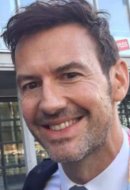
Damien Gatinel, MD
Dr. Gatinel has been the head of the Anterior and Refractive Surgery Department of the Rothschild Foundation, Paris, since 2008. His research is mainly focused on IOL design, astigmatism correction, and the detection of subclinical keratoconus. He owns several patents, including the first diffractive trifocal IOL design (e.g., FineVision IOL).
Dr Gatinel is a board member of the Executive Committee of the International Society of Refractive Surgery (ISRS) and of the Research Committee of the European Society of Cataract and Refractive Surgery (ESCRS). He serves on the Editorial Board of the Journal of Refractive Surgery. He has received 18 international awards, published more than 100 articles in peer-reviewed journals and edited three books.
Dr. Gatinel became a Fellow of Ophthalmology at the Avicenne Hospital, University of Paris XIII after completing his residency in 1996, and then moved on to assistant professor at the Bichat Claude Bernard Hospital (University of Paris VII) and stayed there until 2008. Dr. Gatinel’s fields of interest and research include corneal topography and subclinical keratoconus detection, IOL optical design, analysis of the optical quality of the human eye, profile of ablation with the excimer laser, multifocality, customized ablations, ocular aberrometry, corneal biomechanics, mathematical modelling, computer assisted modelling, and physiological optics analysis and modelling.
Financial disclosure: I have/had an affiliation (financial or otherwise) with a commercial organization:
- PhysIOL
- Alcon Wavelight
- Nidek
Glaucoma
Augusto Azuara-Blanco, PhD, FRCS (Ed), FRCOphth
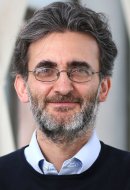
Augusto Azuara-Blanco, PhD, FRCS (Ed), FRCOphth
Dr. Azuara-Blanco is a professor of ophthalmology at Queen’s University Belfast (UK). He completed his Ophthalmology training in Spain, followed by a glaucoma fellowship with George Spaeth at Wills Eye Hospital (USA) and a cornea fellowship with Harminder Dua in Nottingham (UK). After working for a decade as a NHS consultant he joined academia in 2010.
His clinical work is now dedicated to glaucoma. His research portfolio is focused on evaluating the effectiveness of new technologies (treatments, diagnostic tests, models of eye care) for eye diseases, methodological research to improve designs of trials, and epidemiological studies. He is PI of the EAGLE and GATE studies, has four edited books, and has published over 20 chapters and 160 papers. He has raised over £10m of public funding for eye research.
Dr. Azuara-Blanco is a member of the Executive Committee of the European Glaucoma Society and past chair of the UK & Eire Glaucoma Society (2012).
Financial disclosure: I do not have any affiliation (financial or otherwise) with a commercial organization.
Don Budenz, MD, MPH

Don Budenz, MD, MPH
Dr. Budenz is a Kittner Family Distinguished Professor and Chairman, Department of Ophthalmology, UNC Chapel Hill School of Medicine. He graduated magna cum laud and Phi Beta Kappa from the University of Pennsylvania, and received his MD from Harvard Medical School. He received an MPH from the Johns Hopkins Bloomberg School of Public Health with concentrations in epidemiology and international health. He completed an ophthalmology residency at the University of Pennsylvania, Scheie Eye Institute and a Heed Foundation Fellowship in glaucoma at the Bascom Palmer Eye Institute, University of Miami, School of Medicine, where he subsequently served on the faculty for 17 years.
Dr. Budenz’s areas of research include clinical trials in glaucoma, imaging in glaucoma, and glaucoma epidemiology. He has received awards for teaching from the Department of Ophthalmology, University of Pennsylvania and the Department of Epidemiology and Public Health, University of Miami School of Medicine. He has also received humanitarian awards from the American Glaucoma Society and the American Academy of Ophthalmology. He has authored more than 200 peer-reviewed articles and a single-authored textbook entitled Atlas of Visual Fields.
Financial disclosure: I have/had an affiliation (financial or otherwise) with a commercial organization.
- Ivantis
- Alcon
- Inotek
- Forsight Vision 5
International Ophthalmology and Public Health
Nathan Congdon, MD, MPH

Nathan Congdon, MD, MPH
Dr. Congdon is Ulverscroft Chair of Global Eye Health at Queen’s University Belfast, where he directs the Translational Research for Equitable Eyecare Centre. He has been a senior advisor and now director of research for ORBIS International since 2009, helping to design and evaluate ORBIS’s rural eye health projects in Asia and to shape the organization’s global strategic approach new challenges such as diabetic eye disease. Dr. Congdon also maintains a position as Professor of Preventive Ophthalmology at Zhongshan Ophthalmic Center (ZOC) in Guangzhou, and was based there and elsewhere in China for nearly ten years until 2015.
Dr. Congdon received an AB degree from Princeton University and an MPhil from Cambridge University in the UK, both in Oriental studies, and is fluent in written and spoken Chinese. His medical and public health education were received at Johns Hopkins University, where he pursued an ophthalmology residency at the Wilmer Eye Institute. He was on faculty at the Johns Hopkins University Schools of Medicine and Public Health until 2006, when he and his family relocated to China.
Dr. Congdon’s work has focused on two overlapping areas: design and evaluation of high-quality, low-cost models of eye care delivery in areas of limited resources, particularly rural Asia; and eye health service research aimed at improving care and changing government policies in low and middle-income countries. These service delivery and research collaborations frequently involve NGOs working together with academic institutions in Asia and the west.
In addition to other recognitions, Dr. Congdon has received the Asia Pacific Academy of Ophthalmology’s highest recognition for blindness prevention work in 2009 and a Chinese government Thousand Man Plan award in 2011 to support his work. His research on improving the quality of eye care in areas of limited resources has been supported by the UK government MRC, EU, World Diabetes Foundation, USAID, WHO, World Bank, United States NIH, several NGOs and the governments of China and Hong Kong. He has over 175 peer-reviewed publications in journals including Lancet Global Health, BMJ and JAMA.
Financial disclosure: I do not have any affiliation (financial or otherwise) with a commercial organization.
Neuro-ophthalmology
Grant Liu, MD

Grant Liu, MD
Dr. Liu, a professor of neurology and ophthalmology at the Perelman School of Medicine at the University of Pennsylvania, received his medical degree from Columbia University. He completed a neurology residency at the Harvard-Longwood Program and a neuro-ophthalmology fellowship at the Bascom-Palmer Eye Institute.
Although he sees both adult and children with neuro-ophthalmic problems, his special interest is in pediatric neuro-ophthalmology. His clinical research interests include optic pathway gliomas, pediatric pseudotumour cerebri syndrome, and optic neuritis in children. He is the first recipient of the Raymond G. Perelman Endowed Chair in pediatric neuro-ophthalmology.
Financial disclosure: I do not have any affiliation (financial or otherwise) with a commercial organization.
Ocular Regenerative Medicine
Graziella Pellegrini, PhD

Graziella Pellegrini, PhD
Graziella Pellegrini is a full professor at the University of Modena and Reggio Emilia and director of the Cell Therapy Program at the Stefano Ferrari Centre for Regenerative Medicine. She is also co-founder, R&D director and qualified person at Holostem Terapie Avanzate S.r.l.
She graduated in chemistry and pharmaceutical technologies, and later in pharmacy, from the University of Genova. She has coordinated scientific teams in laboratories in various cities. Professor Pellegrini is founding member of the International Ocular Surface Society and a member of other major scientific societies and international committees. She received an award for research in ocular pathology and on the central nervous system and the urethra.
Holder of several patents and author of book chapters and many peer-reviewed articles in major international journals, Professor Pellegrini has been an invited speaker or chair of almost 200 major international meetings on stem cells and regenerative medicine. She is one of the two inventors of the technology for the culture and transplantation of limbal stem cells for the treatment of blindness due to corneal stem cell deficiency; she also collaborated in orphan drug designation and the European registration of the therapy. She has developed other translational medicine protocols for the treatment of third-degree burns and depigmentation and is collaborating in a phase I clinical trial on gene therapy for epidermolysis bullosa. She is currently working with her team on oral mucosa, urethra and airway epithelium.
Oculoplastics
Alon Kahana, MD, PhD
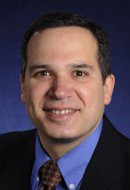
Alon Kahana, MD, PhD
Dr. Kahana is a board-certified ophthalmologist and oculoplastic surgeon at the University of Michigan Kellogg Eye Center. He earned a combined BA/MA in biochemistry at Brandeis University, and MD and PhD degrees at the University of Chicago Pritzker School of Medicine. He trained in ophthalmology, followed by an oculofacial plastic and reconstructive surgery fellowship, both at the University of Wisconsin. Following his fellowship, he was recruited to join the faculty of the University of Michigan, Ann Arbor, where he is now an associate professor with tenure.
Dr. Kahana’s clinical practice focuses on orbital disease as well as on tertiary care eyelid, lacrimal and congenital disorders. Dr. Kahana is an inventor and the author of over 50 publications in peer-reviewed journals. He also leads programs in basic, translational and clinical research that are funded by NIH, various charitable foundations, and industry. Dr. Kahana and his wife Heidi have 4 children, the oldest of whom is a sophomore at the University of Michigan. His hobbies include jazz, golf, ski, history and most team sports.
Financial disclosure: I have/had an affiliation (financial or otherwise) with a commercial organization.
- Genentech Inc.
- National Eye Institute, NIH
- Stryker Corporation
Rene Rodriguez-Sains, MD, FACS
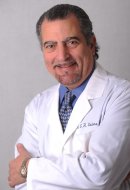
Rene Rodriguez-Sains, MD, FACS
Dr. Rodriguez-Sains recently joined the faculty of the Marshall University School of Medicine after a lifetime in New York City and 33 years in private practice. He received his medical degree from NYU School of Medicine in 1977, did his internship at NYU/Bellevue, and his residency at the Manhattan Eye, Ear, and Throat Hospital, where he subsequently was a Heed Fellow in Ophthalmic Oncology and Ophthalmic Plastic Surgery.
He held academic and clinical affiliations at NYUMC, Manhattan Eye and Ear Hospital, and the NY Eye and Ear Infirmary. He is a fellow of the American Society of Ophthalmic Plastic and Reconstructive Surgery, the American Academy of Facial Plastic and Reconstructive Surgery, and the American Academy of Ophthalmology.
Dr. Rodriguez-Sains has authored close to 100 articles and book chapters and is the co-author of a melanoma textbook. He has given over 150 national and international lectures and has received multiple honours, including “Top Doctors NY Metro Area,” “America’s Leading Experts,” “Super Doctors,” and “Guide to America’s Top Ophthalmologists” among others.
Financial disclosure: I have/had an affiliation (financial or otherwise) with a commercial organization.
- MD Solar Sciences
- Skin Cancer Foundation
Ophthalmic Pathology
Patricia Chévez-Barrios, MD
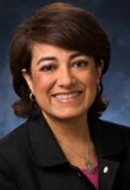
Patricia Chévez-Barrios, MD
After finishing ophthalmology and pathology residencies and five fellowships (2 in ophthalmic pathology), Dr. Chévez-Barrios joined the faculty of the Baylor College of Medicine in 1996 in the Departments of Pathology and Ophthalmology. She became a faculty member in the Departments of Pathology and Ophthalmology, Weil Cornell Medical College, at Methodist Hospital in 2004 where she currently holds the academic rank of professor. She holds appointments of adjunct professor in pathology at the University of Texas MD Anderson Cancer Center, and in ophthalmology at the Baylor College of Medicine.
Dr. Chévez-Barrios is the director of the Ophthalmic Pathology Program at Houston Methodist Hospital, the Ocular Oncology Research Laboratory at Houston Methodist Research Institute and is the research co-director of the Retinoblastoma Center of Houston. She has been the president of the American Association of Ophthalmic Oncologists and Pathologists since 2014 and belongs to several other pathology and ophthalmology associations.
Dr. Chévez-Barrios has received the Fulbright & Jaworski LLP Award for Faculty Excellence in Teaching, the Best Teacher Award in Neuropathology from Houston Methodist, and Senior Achievement Awards from the American Academy of Ophthalmology. She has authored nearly 100 peer-reviewed articles and several book chapters.
Financial disclosure: I do not have any affiliation (financial or otherwise) with a commercial organization.
Pediatrics
Arlene Drack, MD
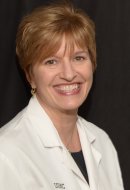
Arlene Drack, MD
Dr. Drack is the Ronald Keech Associate Professor for Pediatric Genetic Eye Disease Research in the Department of Ophthalmology and Visual Sciences, Wynn Institute for Vision Research (WIVR), at the University of Iowa. She is director of electrophysiology in the Department of Ophthalmology and directs the animal electroretinogram program in the WIVR. She is also an investigator in human gene therapy trials for inherited genetic retinal disorders.
Dr. Drack graduated from the University of Scranton with majors in biology and philosophy and received an ITT International Fellowship to do research at the University of Oslo. This was followed by medical school at the Pennsylvania State University, internship and ophthalmology residency at Georgetown University, and fellowships in ophthalmic genetics at Wilmer Eye Institute, Johns Hopkins, Pediatric Ophthalmology and Strabismus at Iowa, and Molecular Ophthalmic Genetics at Iowa.
Dr. Drack practiced pediatric ophthalmology with a subspecialty in genetics on the faculty of Emory University, and later served as chair of pediatric ophthalmology at The Children’s Hospital, Denver, University of Colorado. She was then recruited back to Iowa to participate in the Phase III subretinal gene therapy trial for RPE65 LCA, and to develop a translational research laboratory which investigates treatments for pediatric blindness.
Dr. Drack has received Senior Achievement Awards from the AAO and AAPOS. She is the inaugural chair of the Ophthalmic Genetics Task Force for the American Association for Pediatric Ophthalmology and Strabismus. She has over 70 peer reviewed publications, and 21 book chapters. She received a Translational Research Mentor Award from the Carver College of Medicine in 2016.
Dr. Drack lives in Coralville, Iowa, with her husband and daughter. The last time she spoke at a Canadian meeting, she and her family kayaked the Bay of Fundy afterward, so she is looking forward to exploring Montréal.
Financial disclosure: I have/had an affiliation (financial or otherwise) with a commercial organization:
- Spark Therapeutics
- ProQr
- Retrophin
Retina
Diana V. Do, MD

Diana V. Do, MD
Dr. Do is a professor of ophthalmology at the Byers Eye Institute, Stanford University School of Medicine. She is an internationally recognized physician who specializes in the surgical and medical treatment of retinal disorders. Dr. Do is a board-certified ophthalmologist and an expert in the management of age-related macular degeneration, diabetic retinopathy, retinal vein occlusion, retinal detachment, macular hole, retinal infections, and epiretinal membrane. She incorporates state-of-the-art treatment options for her patients while treating each individual with compassion and dignity. Her goal is to provide the highest level of care for each patient.
Dr. Do is a leading clinician-scientist who has authored over 150 publications in the medical literature and has contributed to over 25 book chapters. She has been the principal investigator and co-investigator on more than 45 clinical trials investigating novel treatments for retinal diseases and ocular inflammation. She has been an invited lecturer throughout North and South America, Europe, and Asia. Furthermore, she has directed and participated in many continuing medical education courses for ophthalmologists and retina specialists throughout the United States.
Before joining Stanford, Dr. Do was associate professor of ophthalmology at the Wilmer Eye Institute, the Johns Hopkins University School of Medicine in Baltimore, Maryland. At Hopkins, she was head of the Retina Fellowship Training Program. After her tenure at Johns Hopkins, she was recruited to serve as vice chair of education and professor of ophthalmology at the University of Nebraska College of Medicine. In addition, she was program director of the ophthalmology residency training program and director of the Retinal Fellowship Training Program at Nebraska.
Dr. Do was educated at the University of California at Berkeley where she graduated summa cum laude with a Bachelor of Arts degree in molecular and cellular biology. She received her medical degree (Alpha Omega Alpha) and was a Regent’s Scholar at the University of California San Francisco School of Medicine. After completing her medicine internship at Massachusetts General Hospital/Harvard Medical School, she pursued both her ophthalmology training and retina fellowship at the Wilmer Eye Institute, the Johns Hopkins University School of Medicine.
Her academic achievements have been recognized with numerous national awards including the Heed Ophthalmic Foundation Clinician-Scientist Award, the Ronald Michels Fellowship Foundation Award, the Honor Award from the American Society of Retina Specialists, and the Achievement Award from the American Academy of Ophthalmology.
Dr. Do has an active clinical and surgical practice while she continues to investigate novel treatments for retinal diseases. In addition, she teaches students, residents, and retina fellows at Stanford.
Financial disclosure: I have/had an affiliation (financial or otherwise) with a commercial organization:
- Gentech
- Regeneron
- Santen
- Bayer
Tarek Hassan, MD
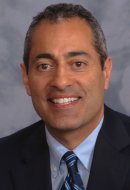
Tarek Hassan, MD
Dr. Hassan is a professor of ophthalmology at Oakland University William Beaumont School of Medicine and senior partner and director of the Vitreoretinal Fellowship Training Program at Associated Retinal Consultants in Royal Oak, Michigan. He is the immediate past president of the American Society of Retina Specialists (ASRS) and current president of the Foundation of the ASRS. He has served on the Executive Committee of both the ASRS and the Foundation of the ASRS for the past 8 years. He is currently the president-elect and an Executive Committee member of the Retina World Congress. He has been the recent program chairman for two ASRS Annual Meetings and two Retina Subspecialty Day Programs at the American Academy of Ophthalmology (AAO) Meetings. He is the course director of both the Annual Retina Fellows Forum Meeting and the Vail Vitrectomy Meeting. He is the founder of two international vitreoretinal societies, and presently serves as the president and course director of the Club Vit.
Dr. Hassan has an active clinical and academic practice. He is extensively involved in both basic science and clinical vitreoretinal research studies, and has served as principal investigator or co-investigator in more than 120 national trials, notably in the areas of macular degeneration, diabetic retinopathy, retinal vein occlusion, and vitreoretinal surgery. He has authored and co-authored more than 200 papers in peer-reviewed journals and 8 books or book chapters for medical texts. He is a scientific reviewer for all the leading journals within ophthalmology and retina, and on the editorial board of several. He has been a leader in the areas of retinal detachment repair, diabetic retinopathy, and macular degeneration, and has lectured extensively nationally and internationally for many years, giving 560 presentations on these topics. He was awarded the AAO Achievement Award in 2003, the ASRS Senior Honor Award in 2004, and the AAO Senior Achievement Award in 2013. He has also been named to the “Best Doctors in America” listing every year since 2000. He is very committed to retina fellow education and has had the honor to train 38 clinical vitreoretinal fellows and over 25 international research fellows.
Born in Houston, Texas, Dr. Hassan pursued his undergraduate and medical school training at the University of Michigan in Ann Arbor, Michigan. He stayed at the University of Michigan Kellogg Eye Center to complete his ophthalmology residency prior to completing his vitreoretinal fellowship at Associated Retinal Consultants/William Beaumont Hospital in Royal Oak, Michigan.
Financial disclosure: I have/had an affiliation (financial or otherwise) with a commercial organization:
- Novartis
- Roche
- Bayer
- Allergan
- Alcon
- Insight
- Regeneron
- Arctic Dx
- Insight Instruments
Uveitis
Jyotirmay Biswas, MS, FMRF, FNAMS, FIC Path., FAICO

Jyotirmay Biswas, MS, FMRF, FNAMS, FIC Path., FAICO
Dr. Biswas is director of Uveitis & Ocular Pathology Departments at Sankara Nethralaya, Chennai, India. He is an ophthalmologist who has specialized in uveitis and ophthalmic pathology. He has an MBBS from the Medical College, Calcutta, a postgraduate degree in ophthalmology from PGIMER Chandigarh, and held a fellowship in vitreoretinal surgery from Sankara Nethralaya. He did a two-year fellowship in ophthalmic pathology at Doheny Eye Institute, USA.
Dr. Biswas has published 358 articles in peer-reviewed journals and 47 chapters in ophthalmology books. He has presented 202 papers and given 272 lectures at national and international conferences. He has also reviewed 36 journals and received 32 awards.
Dr. Biswas is a member of the International Uveitis Study Group, the American Uveitis Society, and the International Ocular Inflammation Society. He was the first to describe ocular lesions in AIDS in India. His current area of research is uveitis, AIDS, and Eales’ disease.
Financial disclosure: I do not have any affiliation (financial or otherwise) with a commercial organization.
Women In Ophthalmology
Isabelle Brunette, MD, FRCSC
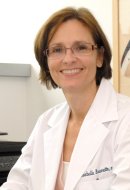
Isabelle Brunette, MD, FRCSC
After completion of a clinical and research training in ophthalmology (Université de Montréal), corneal transplantation and corneal endothelium (Mayo Clinic, Rochester, MN), and refractive surgery (Emory Eye Clinic, Atlanta, GA), Dr. Brunette started her practice in 1990 as an ophthalmologist at Hôpital Maisonneuve-Rosemont (HMR), Montréal.
Dr. Brunette is full professor in the Department of Ophthalmology of the University of Montreal. She is head of the Cornea Service at the HMR Department of Ophthalmology, head of Vision Health Research at the HMR Research Center, and director of the FRQS Research in Vision Network. She has successively been member, vice-chair and chair of the Institute Advisory Board for the Institute of Neuroscience, Mental Health and Addiction, Canadian Institutes of Health Research (CIHR).
As a clinician, the driving force behind her research comes from the patient. Her work is oriented towards translational research and is funded mainly by CIHR and NSERC. Her research has been focusing on the optimization of the functional outcome of corneal transplantation, based on leading edge progress in the fields of tissue engineering, femtosecond laser and biomaterials technologies.
Financial disclosure: I have/had an affiliation (financial or otherwise) with a commercial organization:
- Valeant